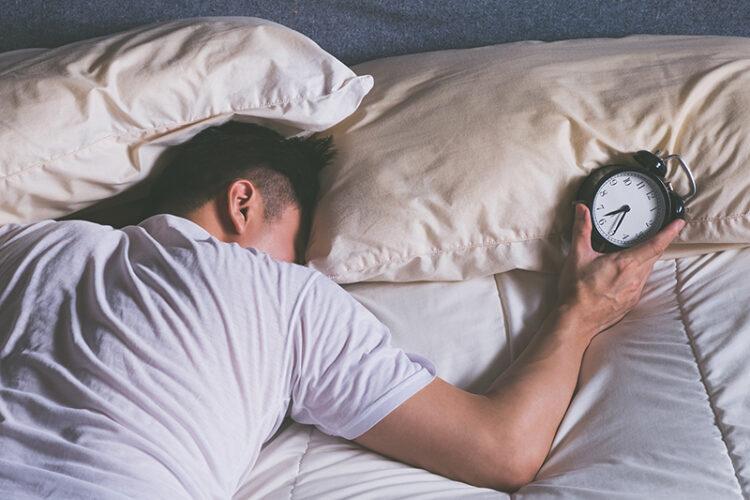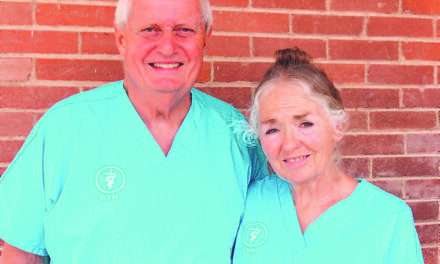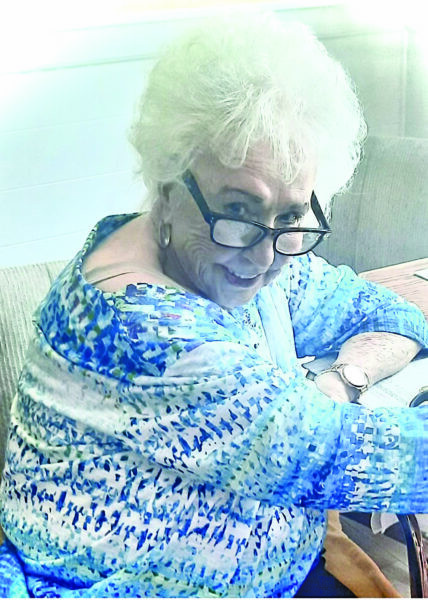A good night’s sleep is essential to good health, but that is not always possible.
Studies show that one third of adults in the United States report they customarily get less than the recommended amount of sleep. Not getting enough sleep is linked with many chronic diseases and conditions, such as type 2 diabetes, heart disease, obesity and depression.
Health professionals agree that getting enough sleep is not a luxury. It is something people need for good health. Sleep disorders can also increase a person’s risk of health problems.
“In medicine, we believe it’s a critical part of your overall health,” said longtime Socorro physician Dr. Ravi Bhasker. “It’s a restorative process of our brain cells that have been used during the day. It gets them to rest so that you can recover the next day and continue going through the stressful things that you experience.”
The eight-hour cycle is the best, he said, although that may slightly differ with some people.
“My patients who don’t get good sleep are usually ‘sicker’ with their specific illness, in my practice anyway,” he said. “I think it’s true with blood sugar, with blood pressure. It’s true with ulcers. It’s true with all multiple chronic diseases.”
Poor sleep can, over time, lead to unhealthy habits that can hurt your heart, including higher stress levels, less motivation to be physically active and unhealthy food choices.
“It’s a very crucial part of your total health,” the Socorro physician said.
Insomnia, for instance, is linked to high blood pressure and heart disease. Signs of a sleep disorder include being very sleepy during the daytime and having trouble falling asleep at night. Some people may fall asleep at inappropriate times, such as while driving.
Research shows other symptoms include breathing in an unusual pattern or feeling an uncomfortable urge to move while you are trying to fall asleep. Having an irregular sleep and wake cycle is another symptom of sleep disorders.
Major sleep disorders include restless leg syndrome, insomnia, REM Sleep Behavior Disorder, sleep apnea and narcolepsy. However, these disorders can be diagnosed and treated, bringing relief to those who suffer from them.
“It’s not uncommon for me to address a patient and say do you have problems going to sleep, staying asleep or both?” said Dr. John Courtney.
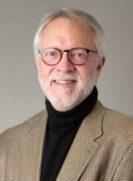
Dr. John Courtney
As a board-certified clinical neuropsychologist and licensed prescribing psychologist, Courtney believes sleep could be considered one of the vital signs, much like pulse, temperature, respiration rate and blood pressure.
Working with patients at Socorro Community Health Center, Courtney says sleep disorders in patients are seen fairly often.
“Sleep is a major part of the work in psychiatry,” he said. “Probably just about every patient from ADHD to depression to anxiety to schizophrenia to bipolar mood disorders — it doesn’t matter the diagnosis — sleep is both a common problem and a necessary vital sign to address and fix.”
Otherwise the likelihood of recovery from any mental illness is very poor, Courtney said.
“Patients with significant anxiety disorders have a tendency to have more problems with sleep onset,” he said. “They have a lot of things running through their mind, like a hamster wheel that keeps going and going. It tends to keep them awake.”
He said patients with depression frequently experience anxiety.
“What you commonly get is disrupted sleep,” Courtney said. “They’ll fall asleep, and sleep for nine minutes or two hours and then they go back to sleep and they’ll wake up again and they never feel like they get complete sleep.
“The more depressed the patient, the more the likelihood to have early morning waking,” he said. “They’re not able to get sufficient sleep.”
Courtney says one of the dilemmas is that there’s a fairly high frequency of obesity, which comes with an increased risk of obstructive sleep apnea.
“Patients have to be referred for sleep studies to determine whether or not a mechanical intervention is necessary to help them achieve better sleep,” he said. “Because as they descend into sleep and their oxygen saturation rate drops, the brain wakes them up.”
For a sleep study, a technician applies small sensors to the head and body with adhesive. The wires lead to a computer that logs how much time you spend in light and deep stages, whether you’re receiving enough oxygen, how often you awaken and whether sleep is disrupted by factors, such as arm and leg movements.
“Sleep studies are very common now. Twenty years ago, I never even heard of a sleep study,” Bhasker said. “They’re usually for people who have obstructive apnea, or some sort of problem where you stop breathing for a while and your saturation of oxygen drops down below 90. That’s when you’re prescribed a CPAP or BIPAP, depending on what kind of sleep apnea you have.”
Both devices deliver air pressure when you breathe in and breathe out. A BiPAP delivers higher air pressure when you breathe in. The CPAP, on the other hand, delivers the same amount of pressure at all times.
There’s not one single technique to solving sleep issues, but there are steps to take that can lead to better sleep.
“People feel like when they drink it makes them sleepy,” he said. “Yes, you will get sleepy, but the problem is that alcohol wears off. So, as your body metabolizes the alcohol, you end up waking up and so you end up with disruptive sleep. It’s also not the normal healthy architecture of sleep.”
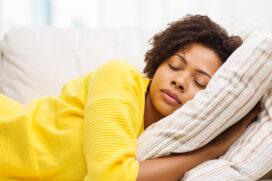
- Establish a regular sleep schedule, which means retiring at the same time each night and rising at the same time every morning; even on the weekends.
- Sleep in a cool, dark and quiet bedroom.
- Try to get in some physical activity during the day, but not close to bedtime.
- Avoid artificial light, such as computer screens or cellphones, within a few hours before retiring.
- Avoid drinking alcohol or eating, especially foods high in fat or sugar, close to bedtime.
